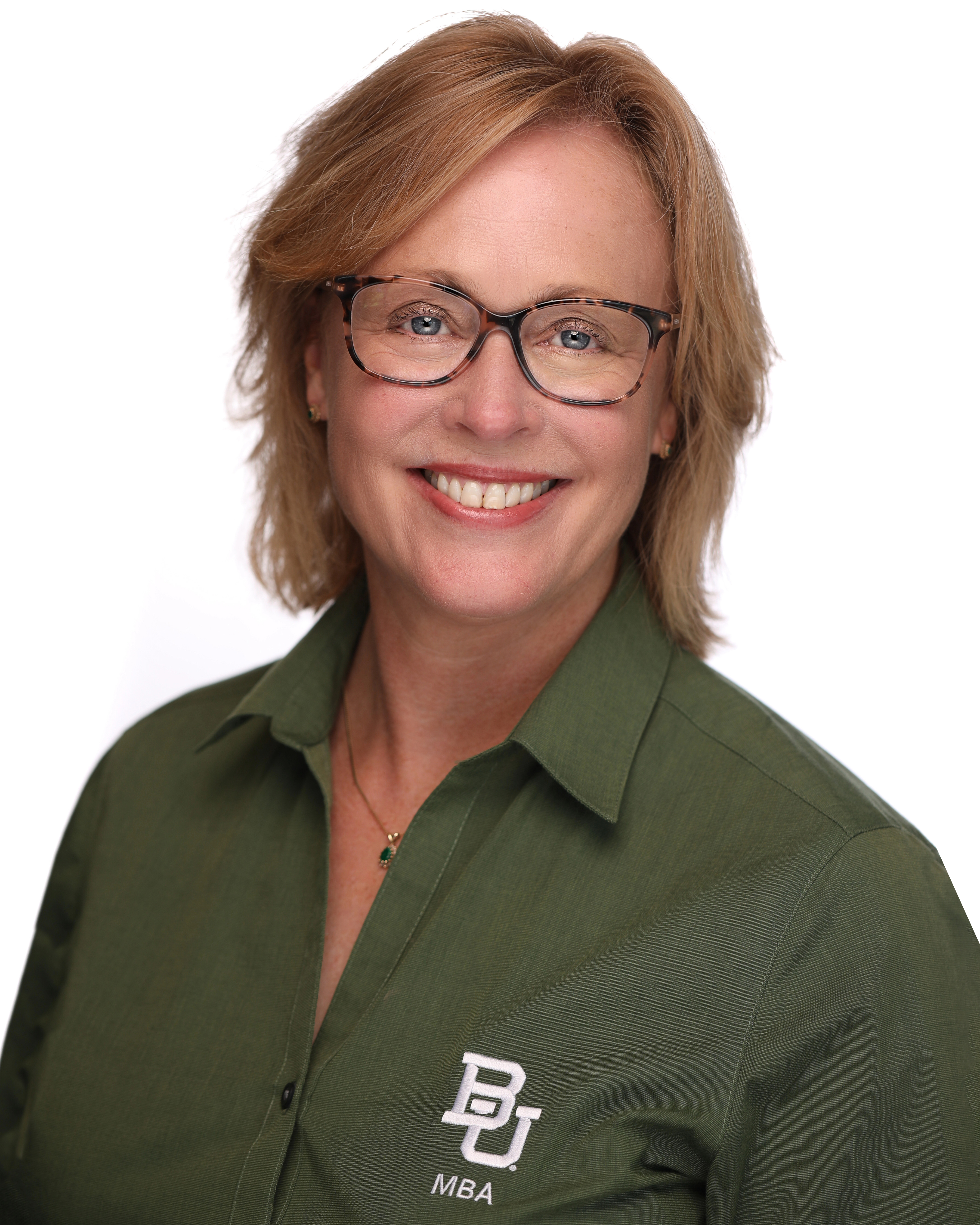Six Tips for Limiting MBA Debt

Laurie Wilson, the director of Graduate Business Programs at Baylor’s Hankamer School of Business, shares her best tips for investing in your future without digging yourself into a hole.
 Laurie Wilson
Laurie Wilson
As the director of Graduate Business Programs for Baylor’s MBA programs, I spend a good portion of my time connecting with prospective students. Whether it is a 22-year-old recent graduate seeking to launch a rewarding career with a Full-Time MBA or a 45-year-old professional who is pursuing an Executive or Online MBA to reach higher rungs of leadership, the price tag is always top of mind.
An MBA is one of the greatest investments you can make in your career, but it is an investment that you must be comfortable with before taking the plunge.
When I speak with students about keeping costs down, limiting debt and maximizing return on investment, I typically make the following suggestions:
1. Take advantage of Baylor's scholarship opportunities.
One of the ways we make education affordable and accessible for Baylor students is by considering admitted students for merit-based scholarships.
For incoming Full-Time MBA students, who receive automatic consideration when they apply to the program, Baylor Scholarships range from 25 to 100 percent of tuition covered. In 2022, the average amount of tuition covered was 65 percent. These awards are based on a combination of work experience, GMAT or GRE test scores and past academic transcripts. If one of these core pieces is weak, the others need to be solid to make your application competitive.
Online MBA and Executive MBA (EMBA) students are eligible for merit-based aid as well. Most applicants do not submit test scores, so applications are weighted more heavily in favor of work experience. If you are a Baylor graduate, a member of the military or an active retiree, you will receive special consideration.
While Baylor awards most scholarships upon admission, students can also apply for special scholarships once enrolled in an MBA program. These scholarships, which come mainly from private donors rather than Baylor, are a mix of need- and merit-based awards typically dedicated to a specific student demographic.
2. Tap into community resources for additional support.
From local rotary clubs to national organizations, there are outside sources of need- and merit-based aid you may never have considered.
The National Black MBA Association, Forté Foundation, The Consortium for Graduate Study in Management, Military MBA and PD Soros are just a handful of many organizations that offer substantial scholarship support for MBA students.
If you are interested in a defined career path, you may look more carefully at companies that offer scholarships to students within your niche. Orbis offers fellowships to incoming MBA students with a passion for investment management, for example, while the ICSC Foundation supports students with an interest in retail real estate.
No matter what your background or career interest, you are likely to find a scholarship that fits you.
3. Apply for federal or private loans.
Consideration for all loans, grants, and scholarships begins with the Free Application for Federal Student Aid (FAFSA), so we encourage every MBA applicant to fill it out regardless of need.
Federal loans come in two forms:
- Direct Unsubsidized Loans: This is a non-need-based loan with flexible repayment. The current origination fee for loans disbursed between October 1, 2020, and October 1, 2023, is 1.057 percent, with a fixed interest rate of 6.54 percent.
- Direct PLUS Loans: These loans are non-need-based and geared toward paying for expenses not covered by other forms of financial aid. The current origination fee for loans disbursed between Oct. 1, 2020, and Oct. 1, 2023, is 4.228 percent, with a fixed interest rate of 7.54 percent.
As a graduate student, you are more likely to have a work history, credit history and financial situation that is conducive to taking out private loans at better rates—sometimes even lower than a federal rate. Currently, average private student loan interest rates range from just under 4 percent to almost 14 percent. As a bonus, most private lenders do not charge origination fees.
4. Apply for tuition reimbursement from your employer.
In 2019, 56 percent of employers offered tuition reimbursement to their employees, but only about 25 percent of interested employees ever started an application to claim this benefit. Check with your manager or HR representative to learn more about what your company offers. It may surprise you.
Not only does offering tuition reimbursement help employers strengthen their employees’ skills and retain top talent, but it also allows them to deduct $5,250 per employee per year for this benefit. If your company does not currently offer reimbursement, it might be worth a conversation.
5. Consider a part-time job to close financial gaps.
While we do not encourage students enrolled in our Full-Time MBA program to work a full-time job, some fund a portion of their living expenses by accepting a part-time graduate assistantship position, which requires them to work closely with a faculty or staff member in the Hankamer School of Business for an average of 10 hours per week. Others qualify for the Federal Work-Study Program, which provides funding for part-time employment based on financial need.
6. Take cost of living (COL) into account.
We advise Full-Time MBA students to budget $20,000 per year for room and board, books, personal expenses and transportation.
In Waco, $20,000 can stretch much further than in the cities where other leading business schools are located. When you factor in the cost of living, you will discover that you need $23,371 in Dallas, $22,831 in Austin, $34,494 in Boston and $55,169 in Manhattan to afford what $20,000 can buy in Waco.
MBA debt accumulates from living expenses, not just tuition, so living in an area with a low cost of living is a wise strategic move.
The Bottom Line
As every MBA student knows, each economic decision comes with tradeoffs. I often ask prospective students where they will be in three or four years if they do not invest in their career now. While each person faces a distinct set of variables and opportunity costs in their decision-making process, my colleagues and I work closely with each individual to ensure that cost is not the variable holding them back from pursuing a lifelong dream.
What's Next
To learn more about financing options for your MBA, connect with Baylor’s Student Financial Services office here. If you would like to speak directly with an admissions advisor, fill out the form below.